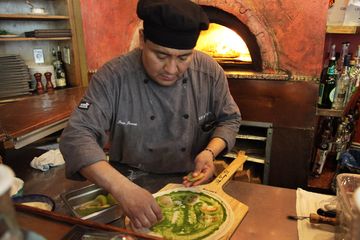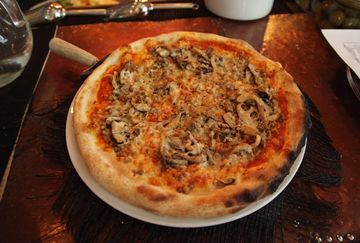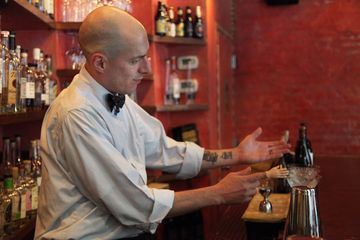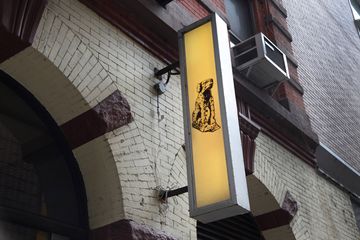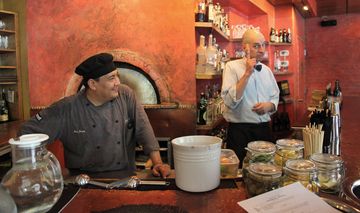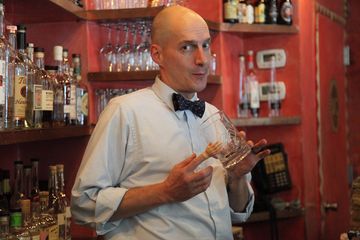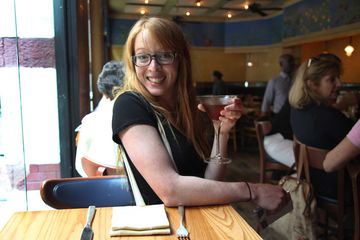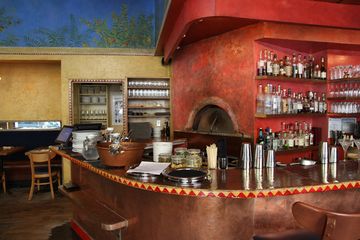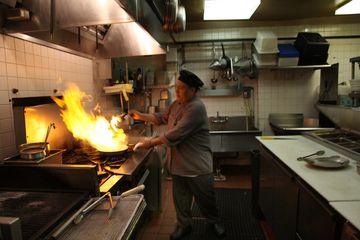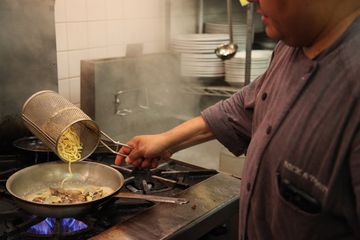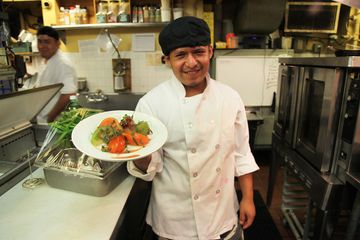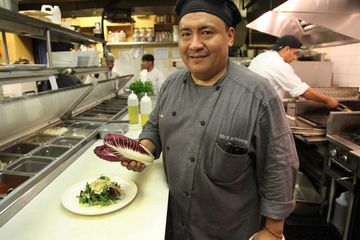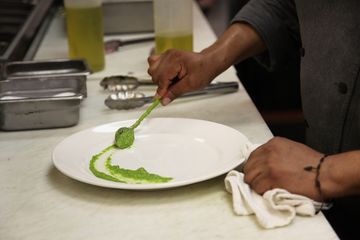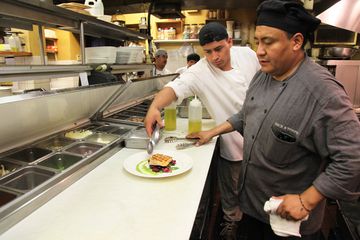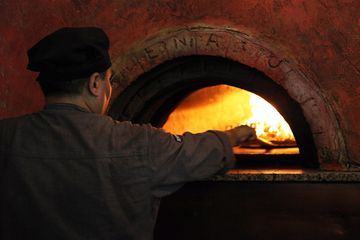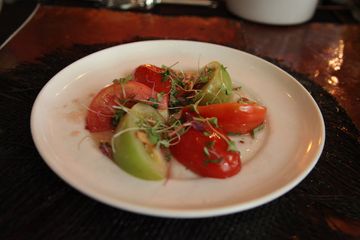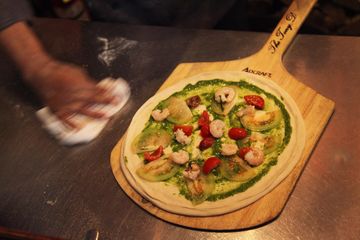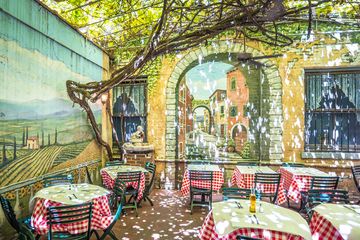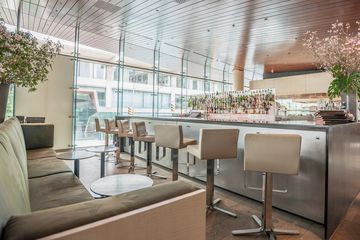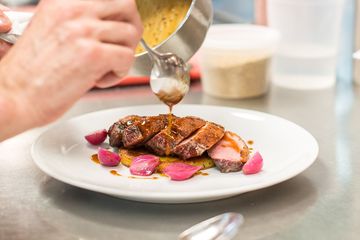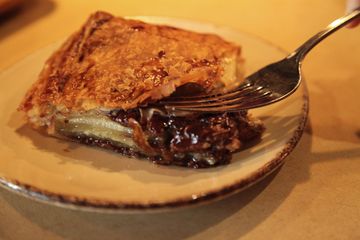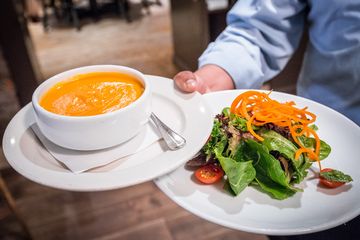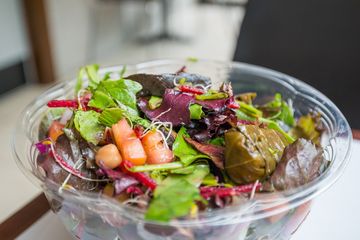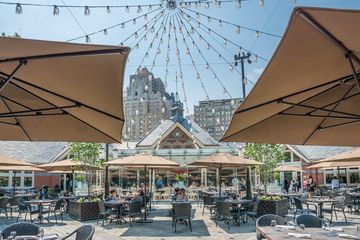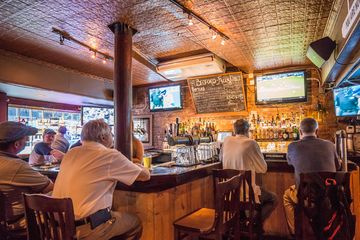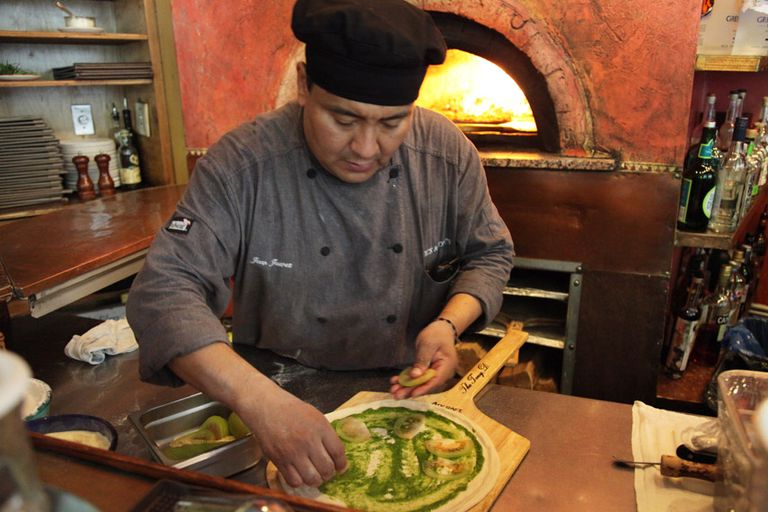
Mark Smith, the current owner of Nick and Toni's Cafe, as well as the original Nick and Toni's out in East Hampton, proudly told me, "The farm to table thing is not new to us." Ever since the Hampton's restaurant opened in 1988, the management has done their best to work with local farmers and fisherman in order to procure ingredients for their Mediterranean fare. The original owners, Jeff Salaway (known as "Nick" to his friends) and his wife Toni Ross, chose to expand to New York City in 1998.
Originally, the Cafe was known as Honest Foods and specialized in prepared dishes, served on cafe high tables or packaged for customers to take out. The food was Mediterranean, with a specifically North African feel. "There was something from each of the countries along the Mediterranean Sea," Mark explained. The owners quickly realized, however, that many of their customers in the city were the same people who dined with them on Long Island, and that they were searching for a similar concept in Manhattan. In 1999, Honest Foods became Nick and Toni's Cafe, a fraternal twin to the East Hampton restaurant.
Mark, who joined the company in 1995 - and has been in charge of much of the company since Nick's death in 2001 - says that the different eco-systems available to both restaurants have created a symbiotic relationship. The city markets draw on resources from Connecticut and New Jersey that often do not reach East Hampton, while the Hampton's have maritime markets that benefit both eateries. He is proud of the high quality dishes that they are able to create, thanks to this fresh produce: "We wouldn't serve anything in our restaurants that we wouldn't serve to our own family," he said. "We serve good product cooked properly in a relaxing atmosphere."
Juan Juarez, the chef behind both restaurants, loves the relationships he has been able to form with farmers, fishermen, and other providers through Nick and Toni's. I was able to see the master at work both in the kitchen downstairs and at the upstairs wood-burning oven. Juan shared his stories about his frequent trips to Union Square market as he effortlessly juggled clams, handmade pasta, and salmon, all on oblong metal platters. The kitchen is the same warm yellow color as the dining room upstairs, but without the frescoes depicting fruit trees. Between the color and the staff, it was evidently a very happy place to work: one employee, seeing us with our camera, joked, "Make sure you get lots of action shots! Juan loves action shots." The bartender, Christian, continued the air of joviality upstairs by taking a tiny plastic baby hand out of his pocket and using it to model with a freshly-made Manhattan.
I witnessed Juan expertly throw together a collection of dishes, including a tricolor salad with arugula, endive, and trevisano, a beet dish with English pea puree, and a chicken dish decorated with heirloom tomatoes. The cherry on the sundae, however, was watching him make pizzas. In less than two minutes, Juan decorated one disk of dough with salsiccia and tomatoes and another with pesto, shrimp, and goat cheese before popping them in the wood-burning oven. While waiting for them to bake, Juan told me that he used to watch his mother cook while growing up in Mexico. Shortly after moving to the United States at the age of fourteen, he told his mother "One day I want to be a cook like you." He got a job as a dishwasher at Saloon Restaurant, but knew that he did not want to wash dishes for a living. On a fateful day in 1988, someone at the restaurant went out on a limb and asked him to work in the kitchen. The rest is history. As the smell of cheese wafted out of the oven, Juan looked around at his brightly colored culinary home and said, "This is my life, and I would never want to change it: I love to cook."
